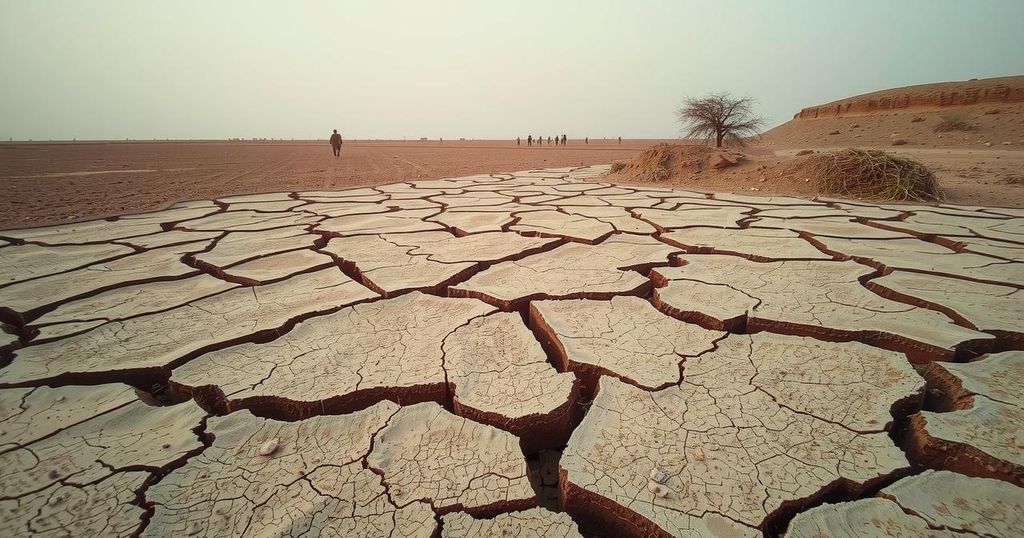Southern Africa is experiencing a severe drought, affecting 61 million people and leading to states of emergency in multiple countries. Namibia specifically is facing acute food insecurity, prompting extreme measures such as culling wild animals for food. The underlying cause is attributed to climate change, which has significantly increased the frequency of natural disasters. Global action against climate change is urgently needed to mitigate its far-reaching impacts.
The crisis in Southern Africa has escalated significantly, primarily due to an extreme drought, marking one of the worst events in over a century. Approximately 61 million individuals are affected, with over 20 million in critical condition, categorized as IPC Phase 3. Countries including Botswana, Namibia, Lesotho, Malawi, Zambia, and Zimbabwe have declared states of emergency amidst this disaster.
Namibia faces particularly severe conditions, where about 40% of its population is facing acute food insecurity. In a desperate measure to alleviate hunger, the government has ordered the culled slaughter of 700 wild animals, including elephants and hippos, to provide food. By 2024, Namibia’s food reserves have reportedly diminished by 84%, intensifying the urgency of the situation.
Historically, Namibia has faced similar challenges, experiencing multiple states of emergency due to droughts in 2013-2014, 2015-2016, and 2018-2019. Such recurring crises illustrate a persistent pattern of vulnerability to climate-induced disasters in the region. Understanding the roots of this prolonged drought points largely to climate change as a crucial cause, exacerbating the frequency of natural disasters.
The data reveals alarming statistics regarding natural disasters: from 1980 to 1999, there were 4,212 occurrences leading to 1.19 million fatalities and $1.63 trillion in damages. In stark contrast, from 2000 to 2019, this figure surged to 7,348 disasters, resulting in 1.23 million deaths and $2.97 trillion in damages, with climate-related disasters increasing by 83 percent.
These environmental crises are not isolated; they reflect a broader global issue of climate change, which demands immediate attention and action. Namibia, known for its beautiful landscapes and diverse wildlife, is at a crossroads demanding collective action against climate change to preserve not only the nation but also global stability.
Addressing the climate crisis is imperative, especially for those living far from affected regions. The repercussions of climate change are pervasive and will inevitably affect everyone globally. While individual actions may appear insignificant, collective efforts can lead to substantial change, underscoring the urgency for immediate and concerted climate action as time is running out.
The drought in Southern Africa, particularly affecting Namibia, highlights the devastating impacts of climate change, resulting in states of emergency and widespread food insecurity. Historical patterns of drought illustrate a critical need for global action to combat climate change, as the frequency and severity of natural disasters continue to rise. It is essential for communities worldwide to recognize their role in addressing this crisis urgently and collectively.
Original Source: www.theteenmagazine.com






